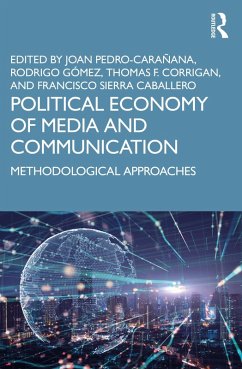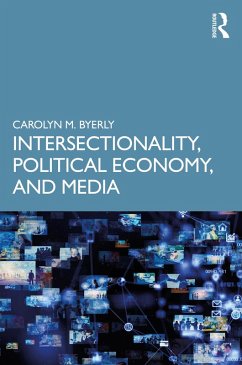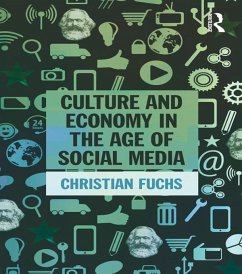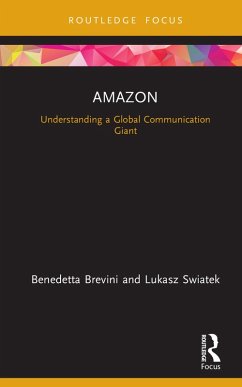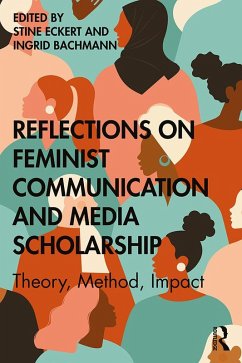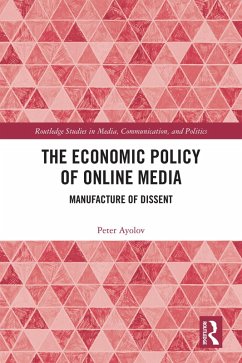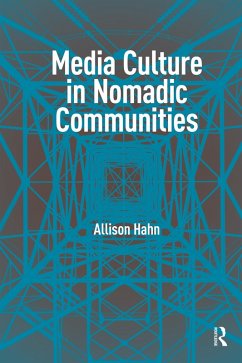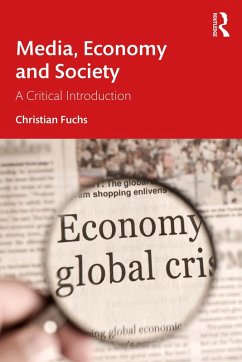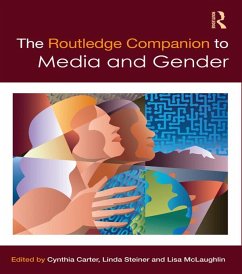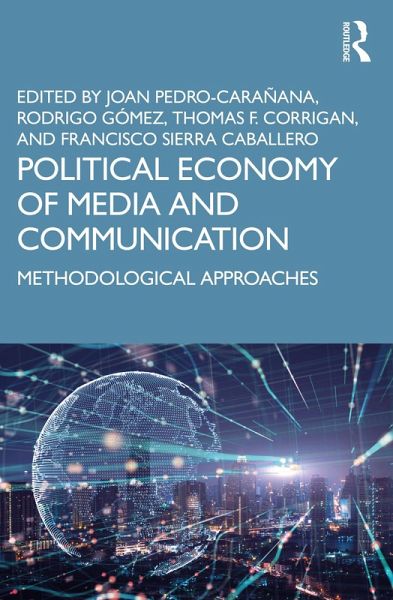
Political Economy of Media and Communication (eBook, PDF)
Methodological Approaches
Redaktion: Pedro-Carañana, Joan; Sierra Caballero, Francisco; Corrigan, Thomas F.; Gómez, Rodrigo
Versandkostenfrei!
Sofort per Download lieferbar
35,95 €
inkl. MwSt.
Weitere Ausgaben:

PAYBACK Punkte
18 °P sammeln!
The first book dedicated specifically to research methods in the political economy of media and communication, it provides a methodological toolkit to investigate the functioning of media, technology, and cultural industries in their historical, institutional, structural, and systemic contexts.Featuring contributions from across the globe and a variety of methodological perspectives, this volume presents the state of the art in political economy of media and communication methods, articulating those methods with adjacent approaches, to study concentration of ownership and power, pluralism and ...
The first book dedicated specifically to research methods in the political economy of media and communication, it provides a methodological toolkit to investigate the functioning of media, technology, and cultural industries in their historical, institutional, structural, and systemic contexts.
Featuring contributions from across the globe and a variety of methodological perspectives, this volume presents the state of the art in political economy of media and communication methods, articulating those methods with adjacent approaches, to study concentration of ownership and power, pluralism and diversity, regulation and public policies, governance, genderization and sustainability. This collection charts the methodological innovations critical political economists are adopting to analyse a rapidly transforming digital media landscape, exploring ideology, narratives, socio-analysis and praxis in communication with ethnographic and participatory approaches, as well as designs for quantitative and qualitative methods of textual, discourse and content analysis, network analyses, which consider power relations affecting communication, including intersectional oppressions and the new developments taking place in artificial intelligence.
An essential text for advanced undergraduates, postgraduate students, and researchers in the areas of media, cultural and communication studies, particularly those studying topics such as the political economy of media and/or communication, media and communication theory, and research methods.
Featuring contributions from across the globe and a variety of methodological perspectives, this volume presents the state of the art in political economy of media and communication methods, articulating those methods with adjacent approaches, to study concentration of ownership and power, pluralism and diversity, regulation and public policies, governance, genderization and sustainability. This collection charts the methodological innovations critical political economists are adopting to analyse a rapidly transforming digital media landscape, exploring ideology, narratives, socio-analysis and praxis in communication with ethnographic and participatory approaches, as well as designs for quantitative and qualitative methods of textual, discourse and content analysis, network analyses, which consider power relations affecting communication, including intersectional oppressions and the new developments taking place in artificial intelligence.
An essential text for advanced undergraduates, postgraduate students, and researchers in the areas of media, cultural and communication studies, particularly those studying topics such as the political economy of media and/or communication, media and communication theory, and research methods.
Dieser Download kann aus rechtlichen Gründen nur mit Rechnungsadresse in A, B, BG, CY, CZ, D, DK, EW, E, FIN, F, GR, HR, H, IRL, I, LT, L, LR, M, NL, PL, P, R, S, SLO, SK ausgeliefert werden.




